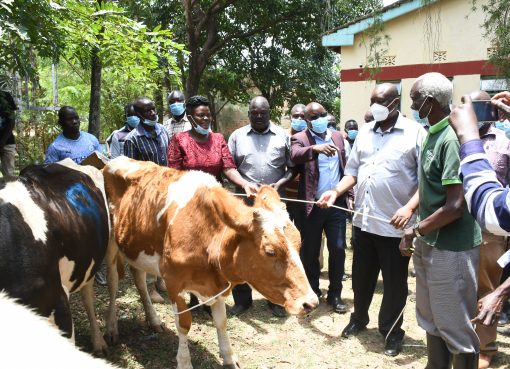Small and medium enterprises (SMEs) in Kenya are actively adopting digital payments, leveraging technology advancements, and forming strategic collaborations to enhance growth and resilience.
The Mastercard SME Confidence Index report released Saturday reveals that with 91 percent of SMEs in Kenya adopting digital payments, businesses are enhancing efficiency, improving customer experiences, and strengthening financial stability.
This shift towards digitalization is reshaping SME operations, with many prioritizing secure payment solutions and broader financial inclusion to stay competitive in a rapidly evolving market.
Mastercard President of Eastern Europe, Middle East and Africa, Dimitrios Dosis, said that as digital transformation accelerates, SMEs are unlocking new opportunities through digital payments and financial inclusion.
“Small and medium enterprises are the backbone of economies, driving innovation, employment, and resilience. Their ability to adapt and grow in a rapidly evolving business landscape reflects the strength of an ecosystem that prioritizes access to finance, digital enablement, and sustainable growth,” said Dosis.
He noted that as SMEs in Kenya continue to embrace digital transformation, access to secure payments, financial services, and strategic partnerships remains key to their success.
Mastercard Africa Division President, Mark Elliott, said they are committed to equipping businesses with the tools and solutions they need to grow, adapt, and thrive in an increasingly digital economy
On the Digital payments at the core of SME expansion, Elliott added that Kenyan SMEs are increasingly recognizing the benefits of cashless transactions in driving operational efficiency and financial stability.
“Business owners cite reduced cash handling, smoother supplier payments, and faster transactions as key advantages of digital adoption,” Elliot said.
Looking ahead, the Mastercard Index shows that 97 percent of SMEs plan to offer simple, seamless, and user-friendly payment methods to customers, while 95 percent aim to accept digital payments across multiple channels.
Additionally, 70 percent are focused on ensuring safe and cyber-secure payment processing, reflecting the growing emphasis on secure digital financial ecosystems.
The Index further shows that while many SMEs anticipate maintaining or increasing their revenue, challenges such as rising costs of goods and services at 71percent and inflation at 68 percent persists.
To navigate these hurdles, over three-quarters of SMEs prioritize access to credit, with 40 percent seeking financing to expand their businesses and 21 percent aiming to maintain daily operations.
The emphasis on digital transactions shows SME recognizing the importance of private partnerships and government initiatives in providing greater financial access, viewing these collaborations as crucial for long-term successes.
Despite facing challenges, 66 percent of Kenyan SMEs expect to achieve the same or higher revenue this year compared to 2024, demonstrating resilience and adaptability.
To support their growth, SMEs also identified key areas needing assistance including digitizing their businesses to meet changing customer needs, supporting and upskilling their teams and accessing a wider range of financial services.
In September 2024, Mastercard partnered with Safaricom, Kenya’s leading network operator, to enable 636,000 Kenyan merchants to accept digital payments globally via QR codes and NFC terminals, aiding in digitalization.
Additionally, recognizing the need for credit access, the Mastercard Foundation Fund for Resilience and Prosperity, announced in April 2024, a USD 126 million grant program targeting Kenyan agribusinesses and digital economy SMEs, offering USD 500,000 to USD 2.5 million in funding alongside technical assistance.
The Master Index survey methodology used the telephone and face-to-face interviews of SME decision-makers in nine countries across three regions of Africa, Middle East and Eastern Europe and, conducted by Ipsos saw up to 300 respondents per country in Kenya, Nigeria, South Africa and 100 in Morocco participate.
By Wangari Ndirangu





